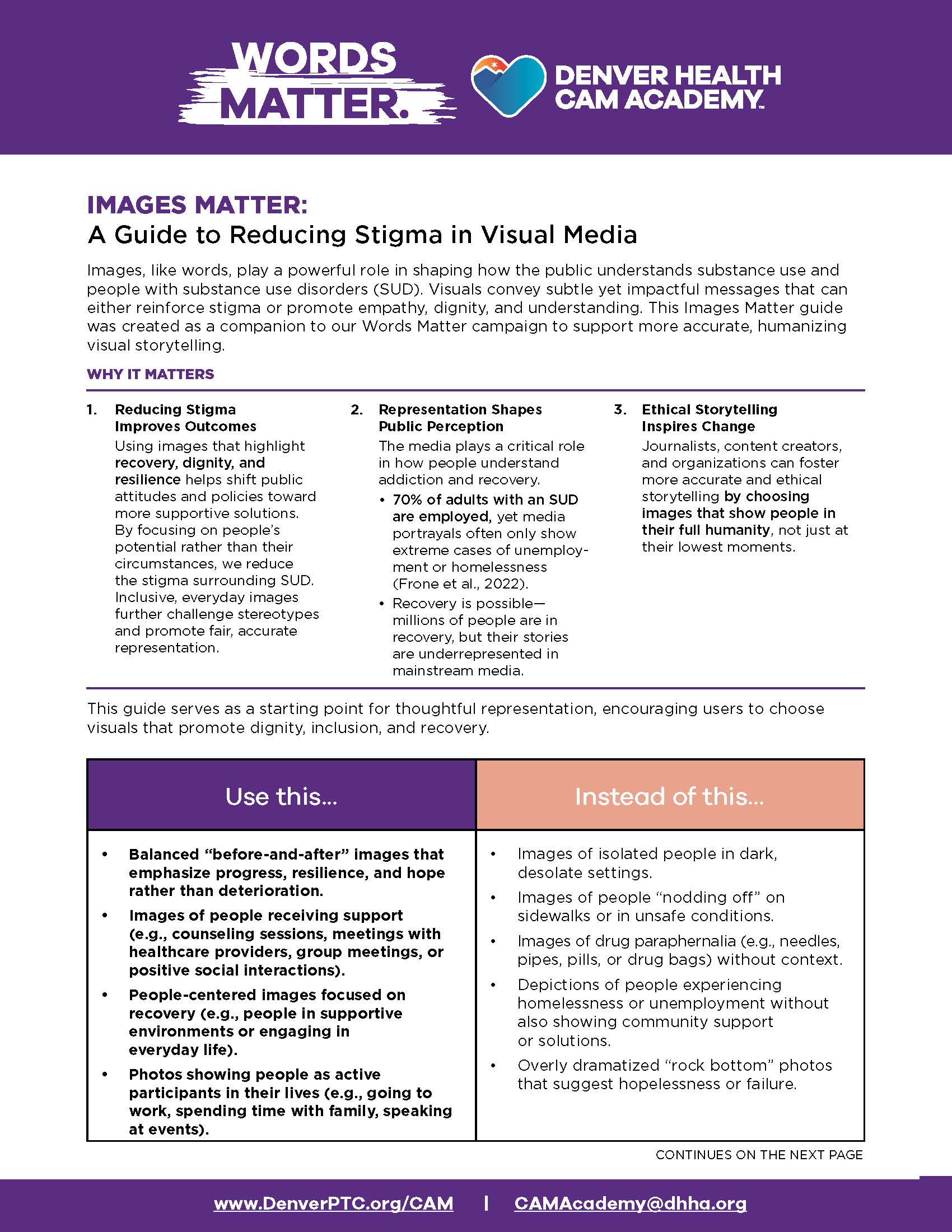Images Matter: A Guide to Reducing Stigma in Visual Media

Just as words matter, visuals communicate powerful, often subtle messages that can either reinforce or dismantle stigma.
This Images Matter guide, designed to complement our Words Matter guide, provides practical recommendations for selecting images that portray people who use substances or have an SUD in a respectful, authentic, and non-stigmatizing way.
By avoiding visuals that perpetuate harmful stereotypes—such as only depicting people with SUD as isolated, unhoused, or surrounded by drug paraphernalia—media outlets, organizations, and advocates can foster a more compassionate narrative. When people feel seen and represented without stigma, they are more likely to seek support without fear of judgment.
Using images responsibly helps promote empathy, understanding, and pathways to recovery, breaking down barriers to treatment and supporting a healthier, more inclusive society.
For access to our Images Matter library, please contact CAMAcademy@dhha.org.


